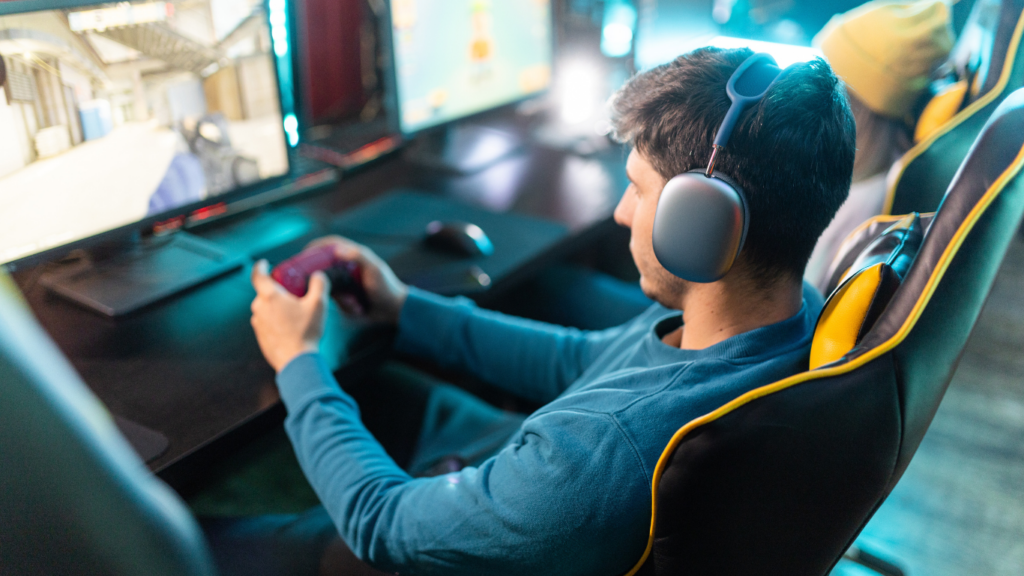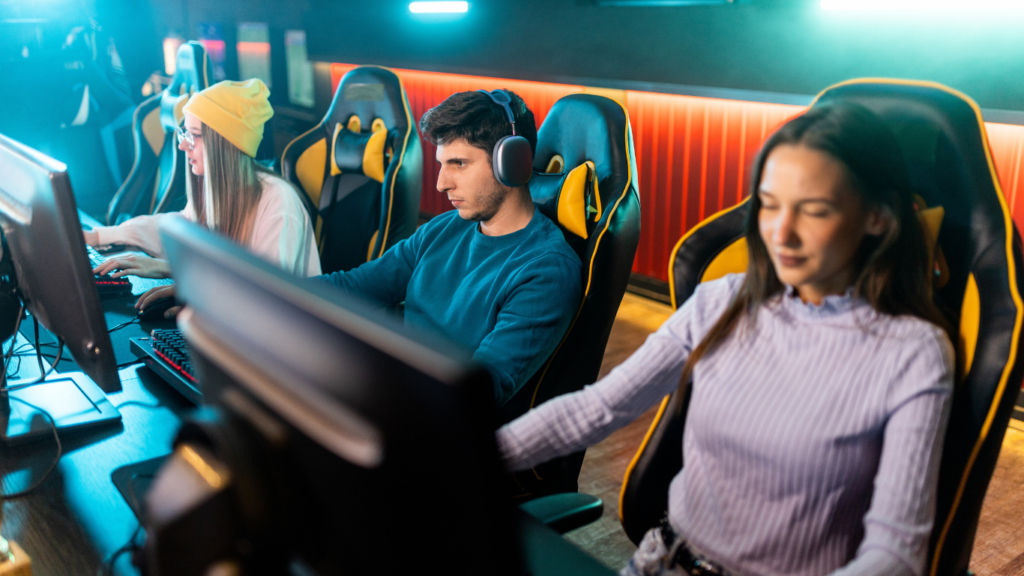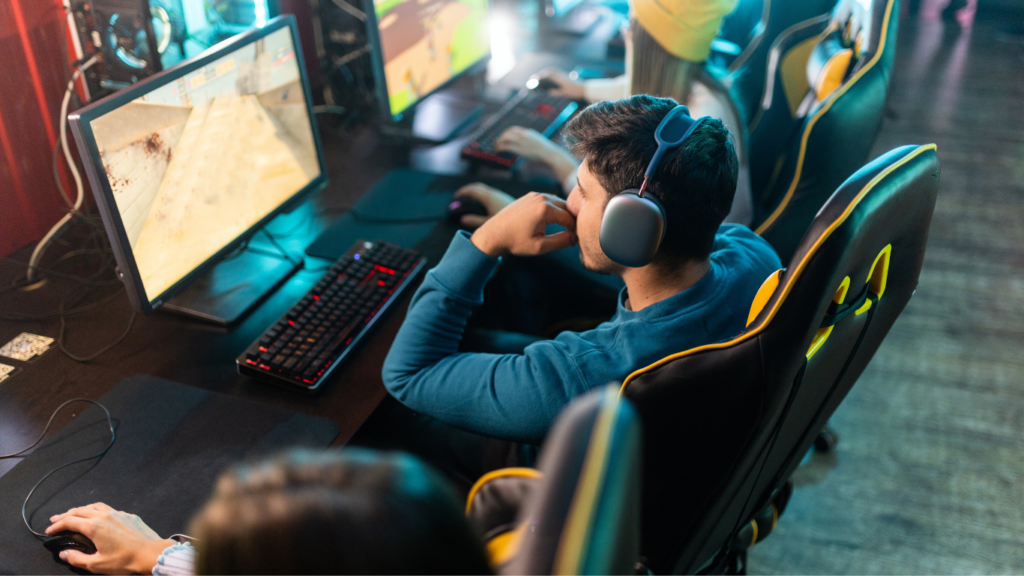Esports is evolving faster than ever, and with it comes a new wave of talented players ready to dominate the global stage. These rising stars aren’t just skilled—they’re redefining the competitive gaming scene with their unique playstyles and game-changing strategies. As we look ahead to 2025, it’s clear that the next generation of esports talent is set to leave a lasting impact.
The Thriving World Of Esports
Esports has transformed into a global phenomenon, drawing millions of fans and redefining competitive entertainment. Its growth continues to create opportunities for both players and audiences.
The Evolution Of Esports And Its Impact
Esports has seen exponential growth, surpassing $1.6 billion in global revenue in 2023, according to Newzoo. Professional leagues, such as the League of Legends Championship Series (LCS) and the Call of Duty League (CDL), have gained mainstream attention, rivaling traditional sports in popularity.
Technological advancements have played a key role, with faster internet speeds and improved gaming hardware making competitive gaming more accessible. Platforms like Twitch and YouTube Gaming provide live-streaming options, enabling fans to connect with their favorite players in real-time. This ecosystem has fueled career opportunities for:
- players
- content creators
- coaches
Rising Stars: Why They Matter In 2025
Emerging players enhance the esports ecosystem by introducing innovative strategies and fresh perspectives. Rising talents like 2023’s Ryu “Keria” Min-seok in League of Legends and Kyle “Bugha” Giersdorf in Fortnite demonstrate how young players can redefine success through adaptability and skill.
In 2025, these rising stars represent the next phase of growth for esports, leveraging dedication, advanced mechanics, and a deep understanding of game meta. Fans invest in these players’ journeys, increasing engagement and bolstering the viewership of tournaments. Their impact goes beyond gameplay, inspiring younger audiences to pursue esports careers.
Criteria For Selecting Rising Esports Stars
I focus on specific factors when identifying esports players who show the potential to become top stars by 2025. These factors combine measurable performance, creative gameplay, and their ability to shape the esports landscape.
Skill And Performance
Consistent high-level performance against top competitors defines rising esports stars. I examine tournament results, individual statistics like kill-death ratios in FPS games or creep scores in MOBAs, and their clutch plays under pressure. Players like Yi “Knight” Tian, who dominated the 2023 League of Legends global stage, demonstrate how exceptional skills can elevate rising talents.
Unique Playstyles And Strategies
Innovative approaches to gameplay distinguish standout players. I analyze how players adapt to changing meta landscapes or create new playstyles, such as unconventional character picks or inventive rotations. For instance, Jaccob “yay” Whiteaker’s ability to redefine Valorant’s Duelist role showcases originality that reshapes competitive dynamics.
Influence And Fanbase
A player’s charisma and ability to engage with fans amplify their rise. I review social media presence, live-streaming activity, and community interaction to determine their influence. Players like Ibai Llanos, who blend competitiveness with fan engagement, embody how maintaining a strong connection to fans solidifies their impact on the community.
Top 10 Rising Esports Stars You Need To Watch In 2025

This list highlights ten exceptionally talented esports players gaining prominence. Each has showcased unique skills, extraordinary adaptability, and strategies that are redefining competitive gaming.
Star #1: Lee “Poby” Seung-hyun
Poby, a 19-year-old StarCraft II prodigy, has consistently defeated seasoned players in global tournaments. His precise micromanagement and tactical foresight set him apart as a leading figure in RTS games.
Star #2: Amelia “ViperElla” Torres
ViperElla, a standout in Valorant, excels at clutch plays under pressure, adeptly securing victories for her team in high-stakes matches. Her sharp aim and quick decision-making have earned her a finalist spot in multiple VCT events.
Star #3: Carlos “Ritz” Gonzalez
As a Fortnite innovator, Ritz has impressed with his mastery of building mechanics and creative edits. His consistent top-three placements in FNCS competitions showcase his dominance in the battle royale scene.
Star #4: Haruki “Shinobi” Tanaka
Shinobi, a rookie in the Overwatch League, combines precise shot-calling with exceptional Genji gameplay. His aggressive yet calculated style is vital to his team’s breakthroughs in this team-based FPS.
Star #5: Anaisha “RocketQueen” Patel
RocketQueen has gained recognition in Apex Legends through her remarkable mid-game strategies and adaptability during chaotic endgames. She ranks among the top Predator-tier players globally.
Star #6: Rico “Byte” Morgan
Specializing in the Call of Duty League, Byte’s methodical yet explosive playstyle leads to consistent multi-kill moments. His sheer dominance in Search and Destroy rounds highlights his tactical acumen.
Star #7: Sophie “BlitzKitty” Nguyen
BlitzKitty has emerged as a leading name in Dota 2, securing MVP titles at regional tournaments with superior carry gameplay. She’s known for her ability to turn losing games around decisively.
Star #8: Matteo “Frostspy” Rossi
Frostspy’s precision as an AWPer in Counter-Strike: Global Offensive has helped his team secure victories against historically dominant squads. His ability to read opponents ensures consistent game-winning plays.
Star #9: Ibrahim “TechKing” Adeyemi
Excelling in Rocket League, TechKing combines mechanical fluency with spontaneous creativity, dazzling fans during live events. He leads his squad with a scoring average that ranks top-five globally.
Star #10: Hannah “Shade” Yoon
Shade dominates League of Legends with her remarkable versatility as a mid-laner. Her successful adaptation to diverse metas has solidified her as a strategic lynchpin for her competitive team.
How These Stars Might Shape The Future Of Esports
Rising esports stars are reshaping gaming landscapes with innovative strategies and unparalleled gameplay. Their growth impacts competitive scenes, fan engagement, and the development of future gaming culture.
Potential Gamechangers In Competitive Gaming
New playstyles and techniques introduced by these stars redefine game strategies across various titles. For example, Carlo “Ritz” Gonzalez’s dynamic building methods in Fortnite challenge traditional approaches, forcing competitors to adapt. Similarly, Sophie “BlitzKitty” Nguyen’s unique hero combinations in Dota 2 are influencing team compositions at pro levels. These contributions enhance the overall meta, pushing boundaries in skill and creativity.
Beyond gameplay, their ability to handle high-pressure tournaments sets them apart. Lee “Poby” Seung-hyun’s rapid micromanagement in StarCraft II exemplifies mechanical expertise essential for top-tier competition. These athletes act as benchmarks for upcoming talents, inspiring leagues to elevate competitive standards.
Building A New Generation Of Fans And Players
These rising talents captivate audiences by connecting directly with fans on streaming platforms. Amelia “ViperElla” Torres streams regularly, sharing insights into her Valorant matches, teaching advanced tactics, and creating an engaging viewer experience. By creating relatable yet aspirational personas, players like Torres attract broader demographics.
Many of these stars also encourage participation in esports among younger individuals. Technologies used by players like Ibrahim “TechKing” Adeyemi in Rocket League, known for his emphasis on approachability in tutorials, foster inclusivity. Their visibility ensures that more aspiring gamers view esports not just as entertainment, but as a viable career path.





